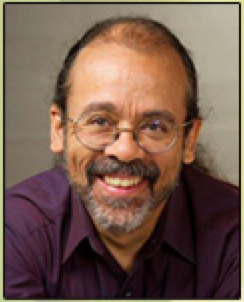“Tapping” (EFT, the Emotional Freedom Technique) and Energy Psychology
“Clinical trials have shown that EFT is able to rapidly reduce the emotional impact of memories and incidents that trigger emotional distress. Once the distress is reduced or removed, the body can often rebalance itself, and accelerate healing. . . EFT is the healing technique I most highly recommend to optimize your emotional health.”
– Dr. Joseph Mercola
“Tapping” (EFT) is the best-known form of Energy Psychology (EP) – but there are scores of others. EP is relatively new as it’s used in Western psychology, but it arose from established disciplines, including Chiropractic and Traditional Chinese Medicine. Energy Psychology and Energy Medicine are garnering recognition from the medical and psychological establishment – from Kaiser Permanente, the Veterans’ Administration, and SAMSHA (the Substance Abuse and Mental Health Services Administration), which determines which techniques are effective for which conditions.
“Early clinical impressions suggest that Energy Psychology . . . is unusually effective with fear, anxiety, and the emotional difficulties of everyday life, from unwarranted anger to excessive feelings of guilt, shame, jealousy, rejection, isolation, and grief.”
– Dr. David Gruder (co-founder of the Association for Comprehensive Energy Psychology)
“Tapping” as a Self-Help Technique: Why it Sometimes Doesn’t Work
If you’ve tried tapping and it hasn’t worked or was only sometimes effective, here are four main reasons:
- Affirmations are most effective when they’re specific to you. The affirmations that you’ve seen online or read in books work for many people much of the time, but not for all of the people all of the time.
- Generic EFT exercises don’t necessarily deal with the reasons people don’t change, whether “secondary gain” or “psychological reversals.” And they can’t take into consideration the reasons you (as an individual) are “stuck.” It takes a more sophisticated and individualized approach to make change happen when habits, behaviors, and beliefs are strongly entrenched.
- Your energy or “chi” isn’t flowing properly – sometimes just because you’re not hydrated enough. This is usually easily diagnosed and corrected.
- Most people don’t know how to use “muscle checking” or other techniques on themselves to prioritize their treatment, assess how effective a session has been, and determine if more work is needed.
What to Expect from a Session
A session essentially consists of touching meridian or chakra points while mentally focusing on a problematic issue, feeling, or situation. (I show you where to touch, and you do it.) EP combines biofeedback (through muscle checking), affirmations, and the principles behind acupuncture to “re-map” patterns in your mind.
One explanation of how EP works is that stimulating these points (known for their electrical conductivity) brings about electrochemical shifts in brain chemistry.
Because most people have psychological/emotional barriers to what they want (otherwise, we’d all “just do it!”), we sometimes work on those before working directly on an issue. It’s common for the issue to diminish significantly at this point.
My Qualifications (and Things You Should Know about Energy Psychology)
My training incorporates EFT and other tools described in “The Promise of Energy Psychology: Revolutionary Tools for Dramatic Personal Change,” by Donna Eden and Dr. David Feinstein.
My EP training was provided by ACEP, the only organization that’s dedicated to helping people find quality EP practitioners by applying professional standards to this field. Most ACEP members are mental health professionals. (Note that the ACEP Board [http://energypsych.org/displayboard.cfm] consists mostly of highly qualified mental health professionals who’ve incorporated EP into their conventional practices.) As an ACEP member, I abide by its Code of Ethics. I consult with an ACEP-approved consultant when needed.
EP is still considered experimental by some, in spite of a growing body of research that shows remarkable success. Nonetheless, the American Psychological Association accepts ACEP as a Continuing Education Provider, as do many states, state psychology boards (including Virginia), and professional organizations (the National Board for Certified Counselors, the Association of Social Work Boards, and the National Association of Alcoholism and Drug Abuse Counselors).
To read the latest studies on EP, go to the Research tab on the ACEP website: www.energypsych.org
